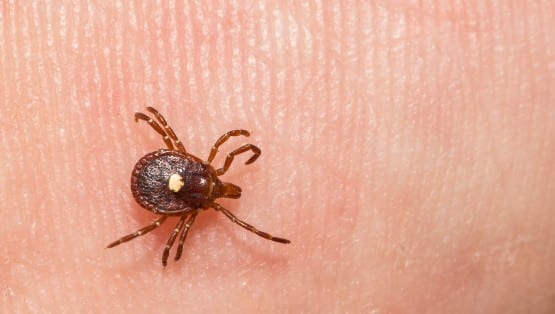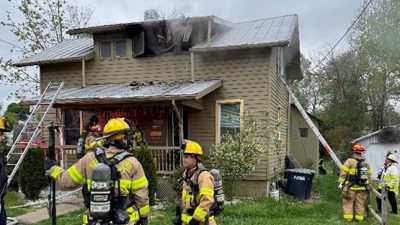
(© ondreicka – stock.adobe.com)
Alpha-gal syndrome is a potentially life-threatening allergic condition often caused by the bite of a Lone Star Tick, which are common in Virginia.
AGS symptoms happen after eating red meat or exposure to other products containing alpha-gal (galactose-α-1,3-galactose), a sugar molecule found in most mammals. Symptoms range from mild to severe or even life-threatening, including anaphylaxis, hives or itchy rash, nausea or vomiting, drop in blood pressure, and swelling of the lips, throat, tongue or eyelids.
According to a July 2023 report, the CDC estimates that up to 450,000 people in the United States have AGS, an increase of an estimated 5,000 cases in 2013. Virginia is among the states with the highest prevalence of AGS cases, according to both the CDC and American College of Allergy, Asthma & Immunology.
The Recognize AGS Act would direct the United States Health and Human Services to make alpha-gal syndrome a nationally notifiable disease.
U.S. Reps. Abigail Spanberger of Virginia and Andrew R. Garbarino of New York introduced the legislation to allow for greater monitoring and reporting of alpha-gal syndrome (AGS) cases by the Centers for Disease Control and Prevention (CDC).
Including AGS on the Nationally Notifiable Disease List would bolster coordination and surveillance efforts critical to treating and preventing AGS. While AGS is currently excluded from the Nationally Notifiable Disease List, other tick-borne diseases, such as Lyme Disease, Anaplasmosis, and Babesiosis, are currently on the list.
“We often hear stories of Americans learning the hard way that they have contracted alpha-gal syndrome — like a family dinner turning into a trip to the emergency room,” Spanberger said. “As this condition affects more and more Americans, Virginians are contending with AGS at some of the highest rates. Including alpha-gal syndrome on the Nationally Notifiable Disease List is a real step to help public health professionals monitor this condition and keep Americans healthy.”
Many Virginians living with alpha-gal syndrome, like Debbie Nichols and Candice Matthis, are looking for more answers about the prevalence and growth of the condition.
“Living with alpha-gal syndrome (AGS) is a daily challenge, and we are incredibly grateful for the work that Congresswoman Spanberger is doing to support the alpha-gal community,” said Debbie Nichols & Candice Matthis, co-founders of Two Alpha Gals. “The CDC has identified AGS as a growing threat to public health, and surveillance is a necessary first step to determine the true prevalence of AGS and to monitor trends in its growth and spread.”
The CDC monitors more than 120 notifiable diseases and conditions at the national level through its National Notifiable Disease Surveillance System (NNDSS). The NNDSS is a nationwide CDC program that enables all levels of public health to share health information to monitor, control and prevent the occurrence and spread of state-reportable and nationally notifiable infectious and noncommunicable diseases and conditions.
“Recent estimates of AGS are alarming,” Garbarino said. “According to the CDC, about 4 percent of AGS cases in the United States are found in Suffolk County, making eastern Long Island an epicenter for this disease. This bill would represent an important step towards increasing national awareness of AGS and helping those on Long Island and elsewhere stay healthy.”










